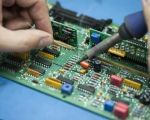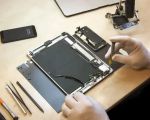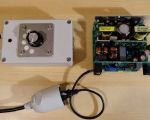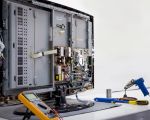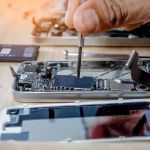How to Boot HP Envy from USB Drive: A Step-by-Step Guide
- 1. Overview of Booting from USB Drive on HP Envy
- 2. Pre-requisites Before Booting from USB
- 3. Step-by-Step Guide to Boot HP Envy from USB
- 4. Common Issues While Booting from USB
- 5. Why You Should Consider Booting from USB
- 6. Best Practices for Booting from USB
- 7. Consider Upgrading Your USB Drive for Better Performance
1. Overview of Booting from USB Drive on HP Envy
If you're using an HP Envy laptop and need to boot from a USB drive, you're in the right place! Booting from a USB drive is an essential skill for troubleshooting, system repairs, or installing a fresh operating system. While it may seem intimidating, the process is straightforward and can save you from unnecessary technical issues.
The HP Envy series of laptops are designed with flexibility in mind, and booting from a USB drive is a feature you can take advantage of for various reasons, such as recovering lost files or installing a new operating system. However, many users are not aware of the steps to do so correctly. In this guide, we'll walk you through the entire process of booting from a USB drive on an HP Envy laptop.
2. Pre-requisites Before Booting from USB
Before you dive into booting from a USB drive, it’s important to ensure that you have everything set up properly. Missing any of these critical elements could result in errors or failure during the process. Here’s what you need:
- USB Drive: The USB drive should be at least 4GB in size and should contain bootable data, such as an operating system installation file or recovery software.
- HP Envy Laptop: Ensure your HP Envy is powered off or restarted, and the USB port is accessible.
- BIOS/UEFI Access: You need to access the BIOS or UEFI settings to change the boot order on your HP Envy.
- File Backup: If you’re performing a system recovery or installation, be sure to back up your important files, as they might be overwritten.
Once you have these elements ready, you’re all set to proceed with booting your HP Envy from a USB drive.
3. Step-by-Step Guide to Boot HP Envy from USB
Now that you have all the necessary pre-requisites, let’s go through the steps to boot your HP Envy from a USB drive:
- Step 1: Insert the USB Drive – Plug the bootable USB drive into one of the USB ports on your HP Envy.
- Step 2: Power On the Laptop – Press the power button to turn on the laptop, but immediately press the ESC key (or F10 depending on the model) to access the BIOS/UEFI settings.
- Step 3: Enter the BIOS/UEFI – Once in the BIOS/UEFI, navigate to the boot options or boot menu. You may need to use the arrow keys to select the correct menu option.
- Step 4: Modify Boot Order – In the boot options, locate the "Boot Order" or "Boot Priority" setting. Move the USB drive to the top of the list so that it takes priority over the internal hard drive.
- Step 5: Save and Exit – Once you’ve adjusted the boot order, save the settings and exit the BIOS/UEFI by selecting the “Save and Exit” option or pressing the F10 key.
- Step 6: Boot from USB – Your HP Envy should now boot from the USB drive. If the drive is bootable, you’ll see the operating system installation or recovery screen appear.
With these simple steps, you can easily boot your HP Envy from a USB drive and proceed with system repairs, installation, or recovery.
4. Common Issues While Booting from USB
While booting from a USB drive is a fairly simple process, some users might encounter issues. Here are some common problems and how to resolve them:
- USB Not Detected: Make sure the USB drive is properly inserted and recognized by the laptop. If not, try using a different USB port.
- Incorrect Boot Order: If the laptop doesn’t boot from the USB drive, double-check that the USB drive is set as the primary boot option in the BIOS/UEFI settings.
- Corrupted USB Drive: If the USB drive is not booting, it could be corrupted or improperly formatted. Ensure it’s correctly set up with the right bootable files.
- Incompatible USB Drive: Some older HP Envy models might not support booting from certain USB drives. Try using a different, high-quality USB drive if necessary.
If you encounter any of these issues, troubleshooting each one will help ensure that your HP Envy boots properly from the USB drive.
5. Why You Should Consider Booting from USB
Booting from a USB drive is not only useful for repairs and installation, but it also offers several advantages over traditional boot methods. Here’s why you might want to choose booting from USB:
- Faster Installation: USB drives offer faster data transfer rates, which can significantly speed up the installation process for operating systems and software.
- Portability: A USB drive is compact and portable, allowing you to easily carry your operating system or recovery tools wherever you go.
- Cost-Effective: If your laptop’s internal hard drive is failing, booting from a USB can be a cost-effective solution for getting your system up and running again without the need for expensive repairs.
With these benefits, booting from a USB drive is an excellent option for those looking to save time and money while managing their system efficiently.
6. Best Practices for Booting from USB
To ensure the best experience while booting from a USB drive on your HP Envy, here are a few best practices to follow:
- Use a Reliable USB Drive: Always use a high-quality, well-formatted USB drive to avoid issues during booting. Ensure it’s large enough to hold all the necessary files for your task.
- Keep Your BIOS/UEFI Updated: An outdated BIOS/UEFI version may cause compatibility issues. Check for updates regularly to ensure smooth operation.
- Backup Important Files: Before booting from USB, make sure you have backed up any important files, as some processes like operating system installations may overwrite data.
By following these practices, you can make the most out of booting from a USB drive and avoid common mistakes that could hinder the process.
7. Consider Upgrading Your USB Drive for Better Performance
If you find yourself booting from USB frequently, it may be worth investing in a high-performance USB drive. A fast USB drive not only improves boot times but also ensures that your system is running at its optimal speed during installation or recovery.
Check out the latest high-speed USB drives at Ninja Stik to boost your performance today. With faster read/write speeds, you’ll enjoy quicker boot times and enhanced data transfer rates.











